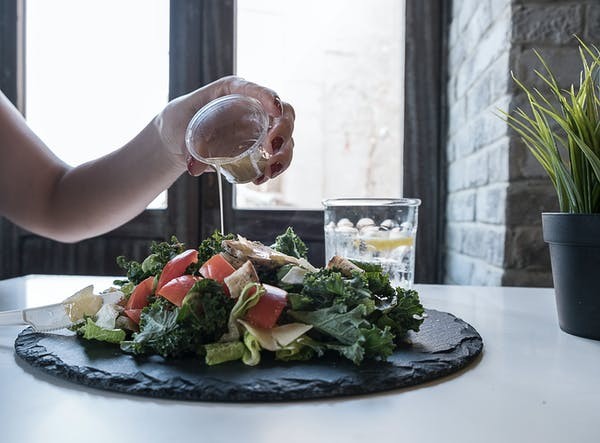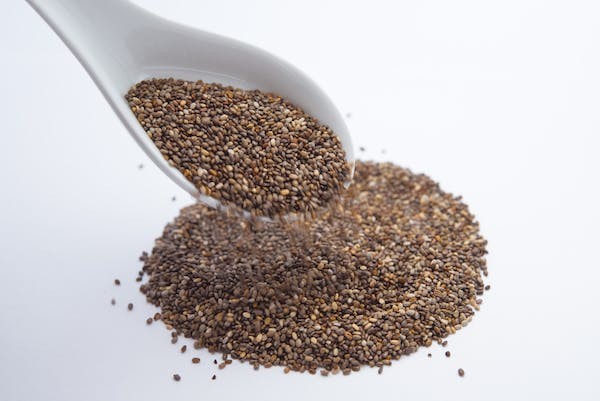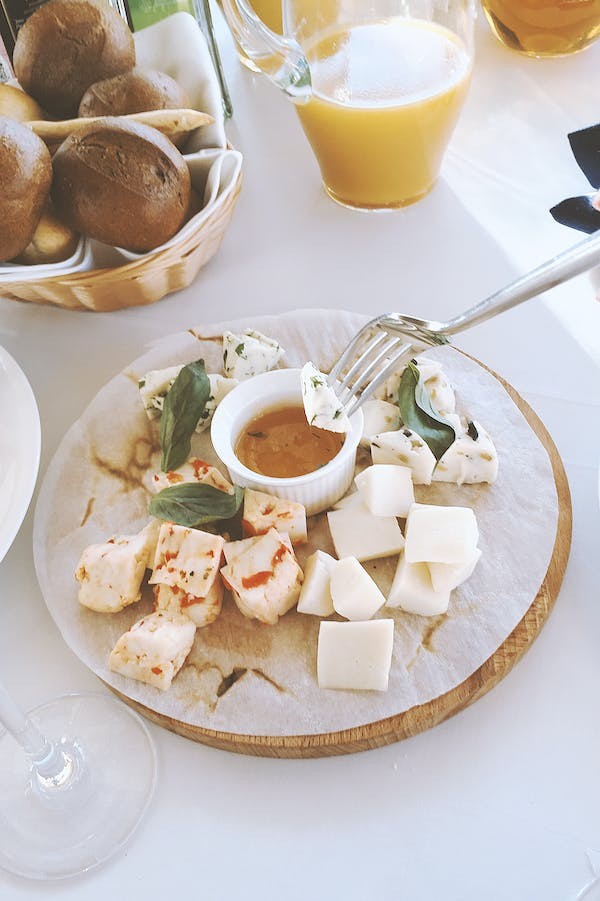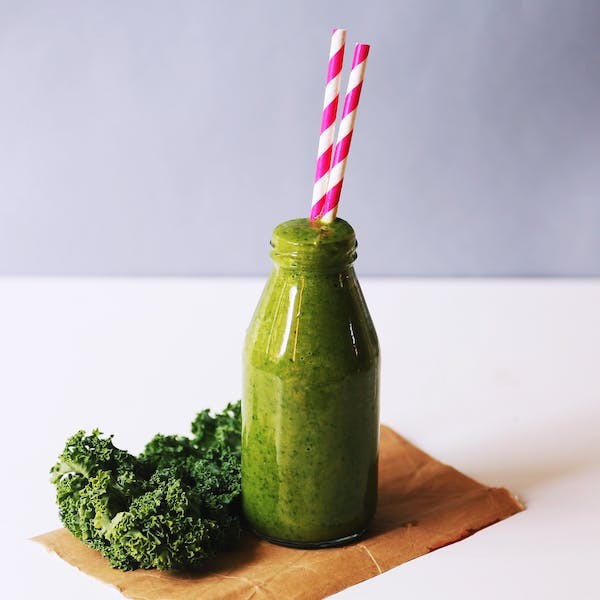This article was posted by CrystalWind.ca.
How to Use a Plant-Based Diet to Boost Your Mental Health
- Details
- Written by Diana Smith
- Views: 1722

In recent years, there has been a growing trend towards plant-based diets, with more and more people choosing to eliminate or reduce animal products from their diets.
While there are many reasons why someone might choose a plant-based diet, such as environmental concerns or ethical considerations, there is also a growing body of research suggesting that a plant-based diet can have significant benefits for mental health. Studies have shown that people who consume more plant-based foods tend to have better mental health outcomes, including lower rates of depression, anxiety, and stress. If you are looking to improve your mental health, adopting a plant-based diet could be a simple and effective way to make a positive change, so here is how to make that happen.

Focus on whole, nutrient-dense foods
A plant-based diet can be incredibly healthy, but it is vital to focus on whole, nutrient-dense foods. This means choosing foods that are minimally processed and rich in vitamins, minerals, and other important nutrients. One of the best ways to ensure that you are getting a wide variety of nutrients is to eat a rainbow of fruits and vegetables. Different colors of produce are associated with different nutrients, so incorporating a variety of colors into your meals can help you get the nutrients your body needs.
Other nutrient-dense foods that can be incorporated into a plant-based diet include legumes, whole grains, nuts and seeds, and healthy fats like avocado and olive oil. These foods are rich in protein, fiber, and healthy fats, which are important for supporting brain function and mental health.

Incorporate sources of omega-3 fatty acids
Omega-3 fatty acids are important for brain health and have been shown to reduce inflammation in the body. While they are commonly found in fatty fish like salmon and tuna, plant-based sources of omega-3s include chia seeds, flaxseeds, and walnuts.
Incorporating these foods into your diet can be a simple way to support brain function and reduce inflammation. You can sprinkle chia seeds or flaxseeds on your oatmeal or smoothie, or snack on a handful of walnuts for a healthy, plant-based source of omega-3s.
Incorporate probiotic foods
Probiotics are beneficial bacteria that live in your gut and play an important role in digestion and overall health. Studies have also shown that probiotics can have a positive impact on mental health, reducing symptoms of depression and anxiety.
Foods that are rich in probiotics include fermented foods like sauerkraut, kimchi, and kombucha. You can also incorporate probiotic-rich foods like tempeh and miso into your meals. Incorporating these foods into your diet can help support a healthy gut microbiome and improve overall well-being.

Be mindful of protein intake
Protein is an important nutrient for supporting brain function and mental health. While it is possible to get enough protein on a plant-based diet, it is important to be mindful of your intake and ensure that you are getting enough. Plant-based sources of protein include legumes, tofu, tempeh, nuts and seeds, and whole grains. Incorporating a variety of these foods into your meals can help you meet your protein needs.
It is also important to note that protein quality is important. While plant-based sources of protein are often lower in quality than animal-based sources, combining different plant-based protein sources can help ensure that you are getting a complete amino acid profile.

Avoid processed foods and added sugars
Processed foods and added sugars can be detrimental to mental health, leading to inflammation and imbalances in the gut microbiome. To support optimal mental health on a plant-based diet, it is important to avoid these foods as much as possible. This is also true when trying to lose weight, so make sure you find an effective weight loss meal plan that will give you the results you need without any added sugar!
Instead of adding sugar to your food, focus on whole, minimally processed foods like fruits, vegetables, whole grains, and healthy fats. When cooking, opt for homemade meals instead of pre-packaged, processed foods. Research has also shown that consuming too much sugar can increase the risk of depression and anxiety. To reduce your intake of added sugars, avoid sugary drinks and opt for whole fruit instead of fruit juice or sweetened snacks.
Consider vitamin B12 supplementation
Vitamin B12 is an essential nutrient that is primarily found in animal products. While it is possible to get some B12 from plant-based sources like fortified foods and nutritional yeast, it can be difficult to get enough through diet alone.
Vitamin B12 is important for brain function and can help reduce the risk of depression and anxiety. If you are following a strict plant-based diet, it may be worth considering a B12 supplement. Talk to your doctor or a registered dietitian to determine if supplementation is necessary for you.

Getting enough vitamin D
Vitamin D is important for immune function and bone health, but it is also been linked to mental health. Low levels of vitamin D have been associated with depression and seasonal affective disorder (SAD).
While it is possible to get vitamin D from sun exposure, it can be difficult to get enough during the winter months or if you live in an area with limited sunlight. Plant-based sources of vitamin D include fortified milk, mushrooms, and fortified cereals. If you are concerned about your vitamin D levels, talk to your doctor about supplementation.
Focus on mindful eating
Mindful eating involves paying attention to the food you are eating, savoring each bite, and being present in the moment. This can help reduce stress and anxiety around food, and may also improve digestion and overall well-being.
To practice mindful eating, try to eat without distractions like your phone or TV. Take your time to chew each bite thoroughly and pay attention to the flavors and textures of your food. Research has shown that mindful eating can have a positive impact on mental health, reducing stress and anxiety and improving overall well-being.
Eating a plant-based diet can have many benefits for physical and mental health, but it is important to ensure that you are getting all the nutrients your body needs. By focusing on the ideas mentioned here, you can support optimal mental health on a plant-based diet. As with any diet, you need to talk to a healthcare professional or registered dietitian before making any major changes to your eating habits.
© CrystalWind.ca 2024. All content (articles, imagery, fair use) & design protected. Written permission required for copying. All rights reserved.
Join the Conversation Now! Comment Below! ![]()
Disclaimer Health
All post and information provided within this blog is for educational and informational purposes only, and is not to be construed as medical advice or instruction. No action should be taken solely on the contents of this website. Please consult with your healthcare professional before making any dietary or lifestyle changes or taking supplements that may interfere with medications. Any products or information discussed are not intended to diagnose, prevent, treat or cure any illness, disease or lifestyle. Please consult your physician or a qualified health professional on any matters regarding your health and wellbeing or on any opinions expressed within this website.

Spirit Animal Totem Of The Day!
Crystal Of The Day!
Latest Articles
The Crystal Wind Oracle
Myth & Magic Card Deck!
Details Here!
NEW Expanded
Printed & Boxed!
Now with 58 cards!
CrystalWind.ca is free to use because of
donations from people like you.
Donate Now »

Unlock Your Light: Join Lightworkers Worldwide on CrystalWind.ca!
Follow Us!
Who is Online Now
We have 24896 guests and no members online
Featured This Month
Lammas by The Hedgewitch
Although in the heat of a Mid-western summer it might be difficult to discer... Read more
Lughnasadh (Lammas) - The Celtic Harvest Fes…
The Celtic harvest festival on August 1st takes its name from the Irish god ... Read more
Lughnasadh Meditation
The Seventh Sabbat of the Wheel is Lughnasadh. Lughnasadh is celebrated on A... Read more
The Season of Lammas
The season of Lammas (also called Lughnasadh) begins on August 1st and conti... Read more
The Hazel Tree: August 5 - September 1
Celtic Symbol : The Rainbow Salmon Zodiac Degrees : 12º00` Leo - 8º59` Virg... Read more
Lugh - Celtic God Of The Sun
The god Lugh was worshiped in Ireland as a deity of the sun. This connection... Read more





























































































































































